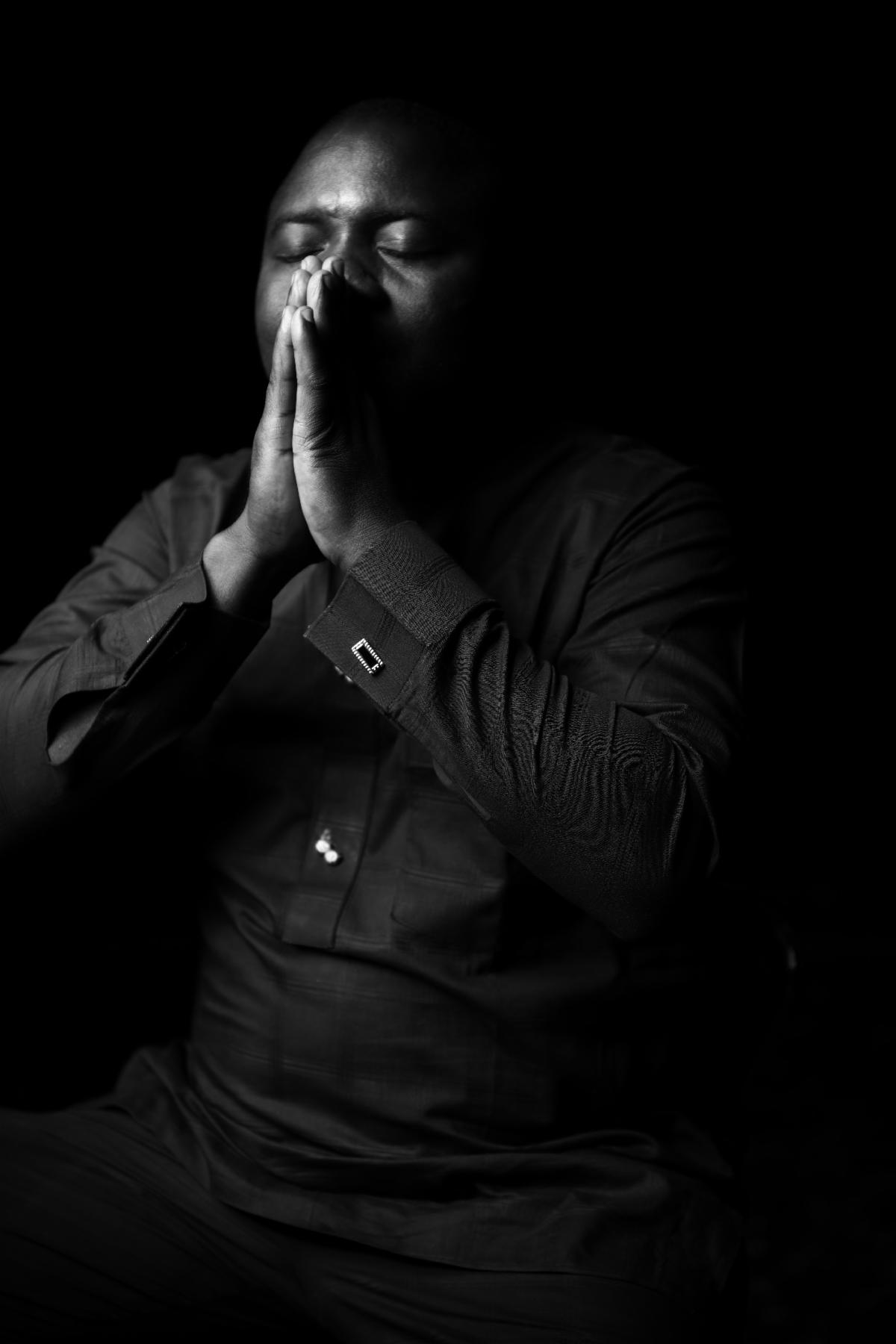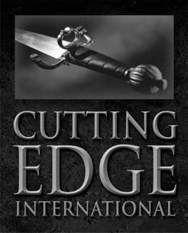How to Overcome Criticism: Acts Series #38

If we practice the normal Christian life, we are going to have normal persecution. Did you know this? If you don’t know it, you’d better learn it. This chapter will help us to know How to Cope with Criticism. Not just any criticism, but criticism that we will receive if we stand for the Lord Jesus Christ.
 Are you enduring criticism for Christ? If not, don’t pat yourself on the back, for the Bible says, “Yea, and all that will live godly in Christ Jesus shall suffer persecution” (2 Timothy 3:12). There’s no way in this world of once-born men can you be a twice-born man or woman and survive without being criticized. You cannot live godly in this kind of a world without being criticized. The Lord Jesus said, “Blessed are ye, when men shall revile you”—Not “if,” but—“when men shall revile you, and persecute you, and shall say all manner of evil against you falsely, for my sake. Rejoice, and be exceedingly glad: for great is your reward in heaven…” (Matthew 5:11– 12).
Are you enduring criticism for Christ? If not, don’t pat yourself on the back, for the Bible says, “Yea, and all that will live godly in Christ Jesus shall suffer persecution” (2 Timothy 3:12). There’s no way in this world of once-born men can you be a twice-born man or woman and survive without being criticized. You cannot live godly in this kind of a world without being criticized. The Lord Jesus said, “Blessed are ye, when men shall revile you”—Not “if,” but—“when men shall revile you, and persecute you, and shall say all manner of evil against you falsely, for my sake. Rejoice, and be exceedingly glad: for great is your reward in heaven…” (Matthew 5:11– 12).
Now, it must be false and it must be for His sake. Some of us get criticized for things we really deserve to be criticized about. But, if you are criticized for standing for the Lord Jesus Christ, if you are persecuted, praise God, that’s exactly the way it ought to be. The Bible says, “Great is your reward in Heaven” (Matthew 5:12).
Sometimes what we get is not persecution, but punishment. Now, you know the difference between persecution and punishment. Persecution comes when bad men persecute us for doing good. Punishment comes when good men punish us for doing bad. Some of us, the criticism we get and the persecution, or the punishment we receive, we deserve. But, I’m talking about those who suffer for righteousness’ sake, those who because of their stand for the Lord Jesus Christ are misunderstood, maligned, persecuted, and sometimes physically accosted. Jesus said, “Rejoice and be exceeding glad” (Matthew 5:12).
The Apostle Paul knew what it was to be criticized, castigated, and condemned. Paul is standing before a Sanhedrin. Now, these men were not just a normal group of people, they were extremely powerful. This was the same group that had caused Jesus to be put to death. It was the same group that had caused Stephen to be stoned. Paul used to be a member of this group. They look upon him as a traitor, as a turncoat. However, now, he’s standing before this council.
In Acts 23:1, we read, “And Paul, earnestly beholding the council…” That is, he’s looking them straight in the eye. He’s standing there with confidence and conviction. Paul said, “Men and brethren, I have lived in all good conscience before God until this day. And the high priest Ananias commanded them that stood by him to smite him on the mouth”—that is, slap his face—“Then said Paul unto him, God shall smite thee, thou whited wall: for sittest thou to judge me after the law, and commandest me to be smitten contrary to the law? And they that stood by said, Revilest thou God’s high priest? Then said Paul, I wist not, brethren, that he was the high priest: for it is written, Thou shalt not speak evil of the ruler of thy people” (Acts 23:1–5).
Evidently, Paul did not even know that the man who was speaking to him at this particular time was the high priest. He certainly was not acting like a high priest.
We are going to be criticized if we live for Jesus, especially in the last days. We are going to be persecuted if you live for the Lord Jesus. So, I think it would behoove us to learn the lessons of this chapter, because I’m going to show you how to cope with criticism and to have peace with persecution. You’re going to be able to do it exactly the same way that Paul did.
I. We Need A Righteous Life
 Paul states, “I have lived in all good conscience before God until this day” (Acts 23:1). Paul had a righteous life. That righteous life came out of a good conscience.
Paul states, “I have lived in all good conscience before God until this day” (Acts 23:1). Paul had a righteous life. That righteous life came out of a good conscience.
What is conscience? Conscience is that inner voice or judge that God has put within our breast that accuses us, or excuses us for our actions. Now, conscience can’t make you be good, it can’t make you be bad, it’s just the alarm that goes off when you are bad, or it’s that peace that affirms you when you do right. We hear people say, “Let conscience be your guide.” Well, you can let conscience be your guide sometimes, but not all of the time. You can only let conscience be your guide to the degree that God guides your conscience.
Paul here said, “I have a good conscience” (Acts 23:1). Well, how do you have a good conscience? In Acts 24:16, we read, “And herein do I exercise myself, to have always a conscience void to offence toward God, and toward men.” A good conscience is a conscience that is free of offense toward God and toward men. If you don’t have that kind of a conscience, you’ll never be able to stand criticism and you’ll never be able to endure persecution.
Let me ask you a question. May I get very personal with you? Nod your head. All right, thank you. Is there in your heart, right now, any unconfessed sin? Any? A-n-y, any unconfessed sin? If so, you don’t have a good conscience. Your sins are an offense to a Holy God and you’ll not be able to stand criticism if you are not as pure as the driven snow.
Is there any problem between you and a brother or sister that you’ve not made right? I’m not talking about what they have done to you; I’m talking about what you have done to them. Have you offended somebody? Is there anybody who can point a finger of accusation back at you and say something about you that you have not endeavored to make right, that you’ve not confessed, that you’ve not repented, that you’ve not made restitution about? If so, you don’t have a good conscience. It is a clear conscience that enables you when people criticize you or persecute you to say, “That’s all right, I know there’s nothing between my God and I know there’s nothing between my brother and sister. Criticize away. It’s okay.”
Paul said, “I’m standing here with a good conscience and that gives you a tremendous liberty.” You don’t have to worry about somebody saying, “Hey, what about this and what about that.” We can’t be sinless, but folks, we ought to be blameless. You know what that means? When we do sin, we confess it, we forsake it, we make it right, we make restitution. “If we have, bring our gift to the altar and remember there that our brother hath ought against us, we leave our gift at the altar and we go and we make it right with our brother…” (Matthew 5:23–45). Does that seem like that’s too much to be right with God and right with man? This standard is basic Christianity. When you have that, it’s amazing how you can stand criticism. If your conscience bothers you, then criticism will bother you.
When Adam and Eve were in the Garden of Eden and they sinned, they wounded their conscience, they hid from God and God came walking in the midst of the garden and cried out, “Adam, ‘…Where art thou?’” (Genesis 3:9). Adam and Eve were in the trees and the bushes hiding themselves from God. Adam said, “…I hid myself” Genesis 3:10). Why? His conscience critic condemned him.
Do you know why people don’t like to get in a worship service? Do you know why they don’t like to be in a praise service? Do you know why they don’t like to hear you talk about Jesus? Do you know why they don’t like to hear the Bible preached? Their conscience bothers them and they run from God just exactly as Adam and Eve ran from God in the Garden of Eden. This is the reason some folks just don’t enjoy coming to church. You get right with God, you’ll enjoy the worship services. You get your conscience bothering you, you’ll feel condemned every time the preacher preaches. You’ll feel like he’s talking right to you. You’ll say, “Why did he get so personal?”
 King David sinned against God and his conscience was wounded and he tried to run from God. I imagine that David, after he committed adultery and murder, if they’d had cell phones in that day, every time the phone rang he was startled. When he saw two people whispering, he’s wondering, “Are they talking about me?” When you’re right with God there’s no unconfessed sin. When you’re right with your fellow man, there is nothing you need to make right, then criticism will not bother you.
King David sinned against God and his conscience was wounded and he tried to run from God. I imagine that David, after he committed adultery and murder, if they’d had cell phones in that day, every time the phone rang he was startled. When he saw two people whispering, he’s wondering, “Are they talking about me?” When you’re right with God there’s no unconfessed sin. When you’re right with your fellow man, there is nothing you need to make right, then criticism will not bother you.
Did you know that the Bible says you can have a defiled conscience? We read in Titus115: “Unto the pure all things are pure: but unto them that are defiled and unbelieving is nothing pure; but even their mind and conscience is defiled.” Now, that’s the reason that you can’t let conscience always be your guide because your conscience is like a thermostat—it can be set to operate anywhere. If your conscience is defiled, then you can’t let your conscience be your guide. Somebody said, “Well, my conscience doesn’t bother me.” Well, that doesn’t mean what you’re doing is right, it just simply may mean that your “conscience is defiled”—you’ve set it at the wrong standard.
Now, not only can you have a defiled conscience, we can have what the Bible calls a seared conscience. 1Timothy 4:2, states that some people are “having their conscience seared with a hot iron.” It’s like you take that branding iron, and you put it down on that quivering flesh, and it burns that mark on that flesh of that animal. That animal is seared, he’s branded with a hot iron, there’s no feeling there at all. You can take that brand mark and put a pin in, a needle in it, he won’t feel a thing because the nerve endings have been burned out.
We can do the same thing with our conscience. We can sin against our conscience; it burns out and it doesn’t operate. So many people actually crucify their conscience. So many people kick their conscience to death. It’s what the Bible calls a seared conscience. It is possible to have a warped conscience. The Bible calls that “a defiled conscience” (Titus 1:15). Or, you may have a deadened conscience. The Bible calls that a seared conscience.
Nevertheless, I suppose the worst kind of a conscience is what the Bible calls an evil conscience. In Hebrews 10:22, we read, “…an evil conscience” (Hebrews 10:22). Do you know what an evil conscience is? An evil conscience is a conscience that literally approves evil. I mean, do you know that some people are so warped and so twisted that they actually call good bad and bad good? People can get so warped, so distorted that they don’t know the difference between right and wrong and they actually think that wrong is right and right is wrong.
If our conscience is defiled, deadened, or devilish we will not be able to cope with criticism. Yet, the Apostle Paul said that day, “I stand here with a good conscience” (Acts 23:1). When you have that, when you know that your life is void of offense toward God and void of offense toward man, then you can cope with criticism and you can have peace in persecution.
II. We Need A Resurrected Lord
 In Acts 23:6, we read, “But when Paul perceived that the one part were Sadducees, and the other Pharisees, he cried out in the council, Men and brethren, I am a Pharisee, the son of a Pharisee: of the hope and resurrection of the dead I am called in question” (Acts 23:6). Paul knew that it wasn’t really him that they were upset with. He knew they were upset with his Lord. He said, “I know why I’m here, I am suffering this criticism, I am enduring this persecution because of the hope of the resurrection of the dead. I have been preaching the death, burial, and resurrection of the Lord and Savior Jesus Christ.”
In Acts 23:6, we read, “But when Paul perceived that the one part were Sadducees, and the other Pharisees, he cried out in the council, Men and brethren, I am a Pharisee, the son of a Pharisee: of the hope and resurrection of the dead I am called in question” (Acts 23:6). Paul knew that it wasn’t really him that they were upset with. He knew they were upset with his Lord. He said, “I know why I’m here, I am suffering this criticism, I am enduring this persecution because of the hope of the resurrection of the dead. I have been preaching the death, burial, and resurrection of the Lord and Savior Jesus Christ.”
We need to learn some truths regarding the resurrection of Jesus Christ. It is a disturbing truth. If that is true, and it is, I’m not saying, “if” with a doubt in my mind. If it is true that a man walked out of his grave, rose from the dead, you’ve got to deal with that, right? I mean, you just can’t be neutral about that. If Jesus Christ is still in that grave, nothing really matters. But, if Jesus Christ came out of that grave, nothing but that really matters. Now, you think about it. That is a disturbing truth. You can’t just say, “Well, maybe he did, maybe he didn’t, makes no difference to me.” I mean, if you’re a thinking person, you’re going to have to face the fact of the resurrection—either it is true or it is not true. It is a disturbing truth.
Additionally, it is not only a disturbing truth, it is a divisive truth. It is a truth not only that disturbs, it is a truth that divides. Look if you will in verse 7: “And when he had so said, there arose a dissension between the Pharisees and the Sadducees: and the multitude was divided. For the Sadducees say that there is no resurrection, neither angel, nor spirit: but the Pharisees confess both” (Acts 23:7–8). So, here you have a classic confrontation. You had the Sadducees who didn’t believe in demons or angels, didn’t believe in a resurrection. And, then you have the Pharisees who believed in demons, and angels, and the resurrection.
In this passage the fundamentalist and liberals have gotten together to form the “Stop Paul” Movement.” The Sadducees and the Pharisees who wouldn’t give one another the time of day have gotten together now to stop Paul. Thus, Paul throws a bombshell in their lap. He says, “I’m here because of the hope of the resurrection.” Now, at that moment there arose a great division because there were some who did believe in the resurrection though they didn’t believe in Jesus, they didn’t believe He was the Messiah. The others didn’t believe in the resurrection at all. Jesus either came out of the grave or He didn’t. Which side are you on? You cannot say that it does not really make any difference.”
The resurrection of Christ, is a truth that delivers. This truth delivered the Apostle Paul. You see, he said, “Look, for the hope of the resurrection of the dead I stand here.” Now, Paul knew the same thing that was causing him persecution was the same thing that was giving him peace. Paul said, “You know, you can do what you want.” As a matter of fact, a little later down in this chapter there were some people who made a vow they were not going to eat or drink or sleep until they’d killed Paul. Paul says, “That’s okay, there’s the hope of the resurrection.”
You see, when a person gets persecuted, when a person gets criticized, if he or she can see through that empty grave to being one with the Lord Jesus Christ, that Christ has conquered the grave, then that helps him/her to stand. Now, if you don’t have that kind of a hope, you’re going to cave in. It’s a truth that delivers. You are not ready to live until you’re ready to die. When a person is no longer afraid to die, strangely, for the first time in his/her life he/she is ready to live.
Paul said, “For the hope of the resurrection of the dead I stand here.” Have you got that? Do you have that bedrock assurance? You see, Paul was morally clean and theologically clear. He had a righteous life and he had a resurrected Lord. And, because of this, they were coming at him, but they didn’t move him. He had something that enabled him to stand against criticism and to have peace in persecution.
III. We Need A Reassuring Lift
 In Acts 23:11, we read, “And the night following the Lord stood by him, and said, Be of good cheer, Paul: for as thou hast testified of me in Jerusalem, so must thou bear witness also at Rome.” Jesus He came and put His arm around the shoulder of Paul. I don’t know whether this was a literal appearance of the Lord, or a vision, or just the Lord came to him just in his inner person. However, Jesus is never more real to you when you stand for Him, when you suffer for Him.
In Acts 23:11, we read, “And the night following the Lord stood by him, and said, Be of good cheer, Paul: for as thou hast testified of me in Jerusalem, so must thou bear witness also at Rome.” Jesus He came and put His arm around the shoulder of Paul. I don’t know whether this was a literal appearance of the Lord, or a vision, or just the Lord came to him just in his inner person. However, Jesus is never more real to you when you stand for Him, when you suffer for Him.
You say, “He’s not near to me.” Well, friend, stand for Him. Stand for Him and you’ll know what the Bible calls “…the fellowship of his sufferings…” (Philippians 3:10). The Lord says, “Hey, you suffered for me, then I’m going to come near to you. When Shadrach, Meshach, and Abednego got in that fiery furnace, Jesus jumped right in there with them and the Lord just came alongside His servant.
When Jesus is there then you can cope with criticism. When we are morally clean and theologically pure, we will be spiritually close. The Lord is by Paul, speaking to him. I don’t know where his other friends were. Paul is by himself, but not really by himself because Jesus is there. Just when I need Him, Jesus is nearby!
And, what does Jesus do? First, Jesus gives him a word of courage. He says, “Be of good cheer” (Acts 23:11). The word cheer actually means “courage. “Paul, don’t be afraid.” Our Lord gave him stamina and strength. It’s not that Paul was so great, it’s that Jesus was so great. Jesus had said to Paul, “I’ll never leave you nor forsake you.” And, the Lord was there with him and the Lord will be there with you. He’ll even tell you what to say. He says in His Word, “Don’t worry what you’re going to say, it will be given you in that hour what to say. God will give you the tongue of the learned.”
He spoke a word of courage and a word of commendation. He says, “Paul, you’ve testified of Me in Jerusalem. Thank you, Paul.” Of course, the Lord knew what Paul had done. Now, Paul was in trouble. I’m so glad that God is the judge and not men. Do you know, if men had been the judge, they’d say, “What’s wrong with that preacher anyway? Why can’t he stay out of trouble?” And everywhere Paul went there was either a revival or a riot, or sometimes both. No doubt, some people would’ve criticized him for getting into trouble.
Did you know the average pulpit committee looking for a new pastor, would not want Paul the Apostle as their pastor? He wouldn’t be suave enough, kosher enough, or physically well enough. Show me the guy who can rub shoulders with the people of this world and not rub any salt in their wounds. No offense, no effect.
“Paul, you testified of Me in Jerusalem. Thank you, Paul.” See, there was a word of courage, “Be of good cheer” (Acts 23:11). There was a word of commendation. Also, there was a word of confidence, “And, you must bear witness also at Rome” (Acts 23:11). What’s God saying? “Paul, they can’t stop you, their little old criticism can’t stop you. You’re My man. You’re going to Rome.
Paul didn’t know this song, but I think if he’d known it he’d have been able to sing, “Through many dangers, toils and snares, I have already come. His grace hath led me safe thus far and grace will lead me home.” Just as surely as there is a God in Heaven, in this day and in this age, if you live a godly life in this modern society, persecution, and criticism are going to come your way.
When this persecution and criticism come your way, may God help you at that time to have a conscience, a void of offense toward God and man; may God help you at that time to have a bulldog grip on the truth that Jesus Christ is the Lord, who walked out of that grave, resurrected; may God give you a sense of the presence of the Lord Jesus who will come alongside you and say, “Thank you,” and put His arm around you and say, “I appreciate your faithfulness to Me.” When that happens, you will not only be able to cope with criticism, but you will also rejoice in it!



























